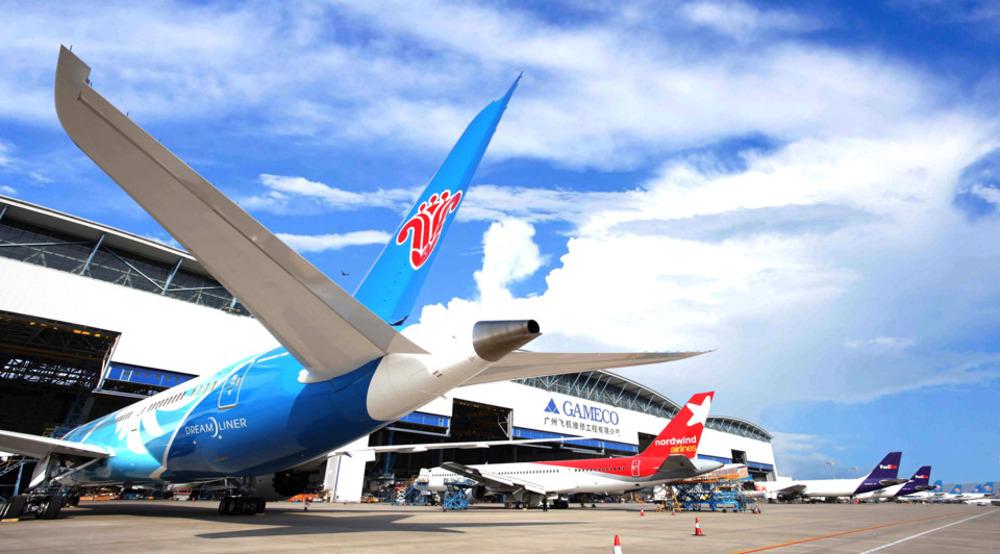
Having recently announced that it would convert its bonded warehouse into a 22,600 sq.ft maintenance shop, Lufthansa Technik Shenzhen chief executive Benjamin Scheidel tells Inside MRO that the move aligns with the component specialist’s goal of offering “vastly expanded” MRO capabilities and a greater range of part number capabilities for its customers.
“In the past, the bonded warehouse mainly served foreign airlines and material providers to store engines and parts in our bonded warehouse area,” he says.
The company also benefits from new Chinese regulations that allow airlines, domestic MRO and aircraft parts distributors to import and export aircraft parts for MRO at zero per cent duty rate. He adds that “13% VAT will be levied only after those parts are used to repair components from Chinese customers”, but that there is no duty for repairs for foreign customers.
Another Chinese MRO provider, Guangzhou-based GAMECO retains its bonded warehouse. “We use it for storage of selected parts and material before customs clearance or storage of consignment parts and spare components, so the owner can serve mainland China or other countries in the region quickly,” says CAMECO chief executive Norbert Marx.
Both GAMECO and LHT Shenzhen benefits from new Chinese regulations that allow airlines, domestic MRO and aircraft parts distributors to import and export aircraft parts for MRO at for zero per cent duty, although 13% VAT is levied if those parts are used to repair components from Chinese customers.
Florida-based GA Telesis (GAT), meanwhile, uses bonded warehouses around the world. Jason Reed, president of GAT’s flight solutions group, says that these save the company time and money, especially for parts that it supports with flight-hour-based maintenance deals.
“Should the turn-time be held up by customs, GAT runs the risk of not having the component back in stock as serviceable or overhauled when the operator next requires it. Should that happen, GAT is obligated to still provide a part to the customer and has to use additional stock or source the market for additional components, thus increasing cost to the program overall.”
To find out more about bonded warehouses and other strategies used to streamline customs processes in the aftermarket, see the next issue of Inside MRO.





